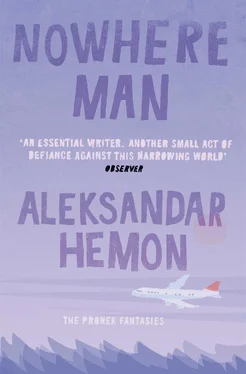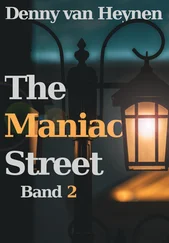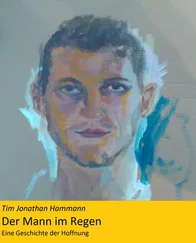“Okay. Do you care about the rain forests?”
“Nah.”
Pronek noticed a little oxygen tank lying next to the chair, like a steel pet.
“Do you care about the clean air?”
“Where are you from?”
“Bosnia.”
“Bosnia? It’s hell there.”
“Not now. The war finished.”
“I see. So why are you here in America?”
Pronek looked for Rachel down the street. The street was littered with stray, soaked brown leaves stuck to the asphalt. The man took off his mittens.
“Because it is better here.”
“It sure is. Land of the free, home of the brave.”
“Anyway, sir, we come here to talk to you. .”
“So what was that war all about?”
“I don’t know. Many things.”
“Wasn’t it religion? Muslims fighting Christians?”
“I don’t know. I don’t think so.”
“Are you Muslim?”
Pronek didn’t want to answer this question, he hated this question.
“No. But I know many Muslims.”
“I killed a Muslim once.” The old man took off his earmuffs and pressed his thumb between his eyebrows. “But it was a car accident.”
“I am sorry,” Pronek said.
The old man banged the wall behind him with his knuckles, startling Pronek.
“Have you ever killed a Muslim?”
“No. I never killed nobody.”
“But you were fighting in that war, weren’t you?”
“No.”
“I fought in a war. I was a sharpshooter. Forty-six successful terminations.”
He banged the wall again, until a young woman came out, with a towel turban on her head and crescent pads under her eyes.
“What?” she asked peevishly through the screen door. She wore a black bra and panties; a rose was tattooed around her navel.
“Give this young man ten bucks. For the dolphins.”
“What dolphins?” She snarled and looked at Pronek.
“Just shut up and get the money.”
The young woman went back in. Pronek grinned stupidly glancing around: a wizened juniper tree leaned against the porch; a dog chain was coiled in the corner; a flag pole with a wet black flag fluttering in the wind stood in the center of the lawn.
“Dolphins, no dolphins,” the old man said, “one day we will all tumble down into the pits of hell.”
To a young couple in Evanston who sat on their sofa holding hands, Pronek introduced himself as Mirza from Bosnia. To a college girl in La Grange with DE PAW stretching across her bosom he introduced himself as Sergei Katastrofenko from Ukraine. To a man in Oak Park with chintzy hair falling down on his shoulders, the top of his dome twinkling with sweat, he introduced himself as Jukka Smrdiprdiuskas from Estonia. To an old couple from Romania in Homewood, who could speak no English and sat with their hands gently touching their knees, he was John from Liverpool. To a tired construction worker in Forest Park who opened the door angrily and asked, “Who the fuck are you?” he was Nobody. To a Catholic priest in Blue Island, with eczema and a handsome, blue-eyed boyfriend, he was Phillip from Luxembourg. To a bunch of pot-bellied Christian bikers barbecuing on a Walgreen’s parking lot in Elk Grove Village, he was Joseph from Snitzlland (the homeland of the snitzl ). To a woman in Hyde Park who opened the door with a gorgeous grin, which then transmogrified into a suspicious smirk as she said, “I thought you were someone else,” he was Someone Else.
THE SECRET CITY
Black-tar rain glittered on the highway, soaked cars plowing through puddles. They passed forlorn warehouses brandishing billboards announcing happy sitcoms and talkless radio. They passed desolate stripped lots with herds of bulldozers and diggers, and cranes roosting on the edges. They saw impenetrable business buildings, encased in glass, reflecting nothing. They passed devo houses hiding behind tall fences, then strip-mall neon lights blinking irksomely under a sky crisscrossed with endless wires. They a saw lonely car disappearing into a lightless tree-lined street, then exposing the middle-class waste like lightning: mowers and rakes and footballs and plastic ghouls and solitary papers sitting on the stairs and swings hanging from a tall tree shuddering under the wind slaps. The car slowly penetrated the garage, the embers of its brake lights inhaling for the last time, fading out under the ashes of the night.
They left Chicago while it was still dark. Their van stopped at the Skyway toll booth, no other cars were around, then it ascended across the bridge. Casino billboards announced the loosest slots, fortune waiting in Indiana. Nobody said anything except for an excited radio broadcaster blurting out nonsense about depressed porn stars. When they reached Indiana, the sky was clear, the last few morning stars barely twinkling.
“You know,” Pronek said to no one in particular, “some of those stars maybe don’t exist.”
Rachel looked at him askance.
“You know,” she said, “it is too early in the morning for onto-logical doubts.”
“Sorry,” Pronek said.
They passed steel mills looming against the dawn, their squareness ominous, their smokestacks spewing tongues of fire and plumes of smoke. Vince coughed when the stench of liquid steel reached them. On the steel-mill parking lots there was an occasional, solitary pickup truck coated with dew, waiting for its master.
“Not to mention the stars you cannot see anymore and that don’t exist,” Rachel said.
“Yeah,” Pronek said.
“How can you see stars,” Dallas grumbled, “if they don’t exist.”
“Don’t know,” Rachel said, “ask our foreign resident philosopher.”
“They send the light, and then they die, and then the light comes to the earth.”
“Still don’t get it,” Dallas said.
“It could be another billion years before the light reaches the dark recesses of your fucking brain,” Rachel said.
Vincent chuckled, still looking out. They passed large white cisterns huddled by the road, ladders on their sides like scars.
“When I was a kid,” Rachel said, “my mother told me that these cisterns were full of orange juice, and that those steel mills produced cookies.”
“Maybe they are,” Pronek said.
“Don’t think so,” Dallas said.
“Yeah, mothers tell you things like that,” JFK said. “When I was a kid I fell off a pickup truck and was in the hospital for a month and my mom told me that it was because I didn’t pray enough.”
“Jesus,” Rachel said.
“Exactly.”
They drove through a wooded stretch where the cobwebby fog still clung to the feet of the trees. There were a couple of does grazing calmly in a ravine.
“Look!” Rachel exclaimed. Pronek leaned toward her window and their shoulders rubbed. His left hand was on the seat behind her, nearly touching her neck. He imagined his fingers gliding down the tip of her spine, then between her shoulder blades.
“I used to be very smart,” JFK said, “before I fell off the truck.”
—
It was cold in Ohio. The van pushed against the wind, smashing snowflakes on its windshield. Snow whorls fidgeted on the fringes of the road. A silhouette of a person followed by a silhouette of a dog walked across a prairie patch, a cloud of snow twirling around them. A silvery train glided across the horizon. In a car passing them, there was a boy asleep in the back seat, strapped and peaceful. Then a monumental truck cast its shadow over them, the word MOVING appearing in Pronek’s window, letter by letter.
“Let me tell you about Oak Ridge,” JFK said, one hand on the wheel, the other on his pate. “Although you probably know everything already.”
“Oh, enlighten us, our kind leader,” Rachel said.
“Let’s hear this song out first,” Dallas said. The voice was whining: “Mom and dad have let me down. .” JFK turned off the radio.
Читать дальше












